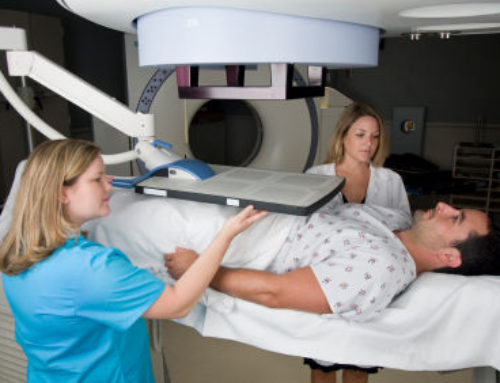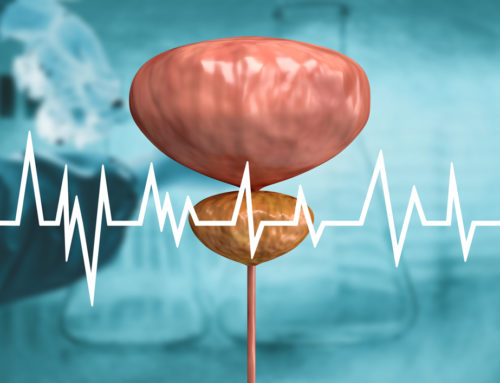Regardless of the treatment option chosen, prostate cancer can recur. Oddly enough, this can happen even after the prostate has been completely removed and there is no evidence that the cancer has spread. The current theory is there may be stem cells in the urethra (water channel) that may eventually turn into prostate cells and may eventually become cancerous. As a result, follow-up is extremely important for all prostate cancer patients.
My routine is to see patients every three months for a PSA (Prostate Specific Antigen simple blood test), and every six months examine the prostate (or the rectum in patients whose prostate has been removed). At three years after treatment if there is no evidence of recurrence, patients are seen every six months for a PSA and DRE (digital rectal exam) forever. This may be more frequent than other physicians suggest, but I find it best to monitor prostate cancer patients closely.
Patients whose prostate cancer recurs may be eligible for further treatment (radiation after prostate removal). However, after radiation, there are limited options with which to treat patients. These patients are treated with medications such as Lupron (or Zoladex) every three months, or as necessary to put the prostate cancer in remission. Patients whose prostate cancer has already spread at the time of diagnosis are treated similarly.
Prostate cancer is very sensitive to testosterone (male hormone). Specifically, testosterone makes the cancer more aggressive, almost like throwing gasoline onto a fire. Years ago the only treatment for these patients was to surgically remove the testicles, the source of testosterone. Now there are medications, such as Lupron, that basically shut down the production of testosterone from the testicles. The dosage I typically prescribe is effective for three months. Once they begin a patient on Lupron, some Urologists will continue treatment forever. However, Lupron and similar medicines may have side effects that include brittle bones, diabetes and/or an increased incidence of heart problems. Once a patient’s PSA has dropped to minimal levels, I will discontinue Lupron treatments but continue to check the PSA every three months. If the PSA begins rising, I will resume Lupron treatments until the PSA decreases.
All treatments for prostate cancer may have side effects, but most are treatable. Common side effects after radiation or surgery include erectile dysfunction that may be overcome with medicines such as Viagra, or with injections. There are also vacuum devices that may be effective. The final option is surgical placement of a penile implant.
Occasionally patients will have bladder control problems. This is very rare and may occur with radiation therapies, but could happen after surgical removal of the prostate (in less than 5% of men). Medications may alleviate these side effects, but at times the bladder control problems may not resolve.
In addition to those listed above, side effects of Lupron will include erectile dysfunction that is very difficult to treat short of a penile implant. Lupron may also cause hot flashes and sweats that can be controlled with medication.






